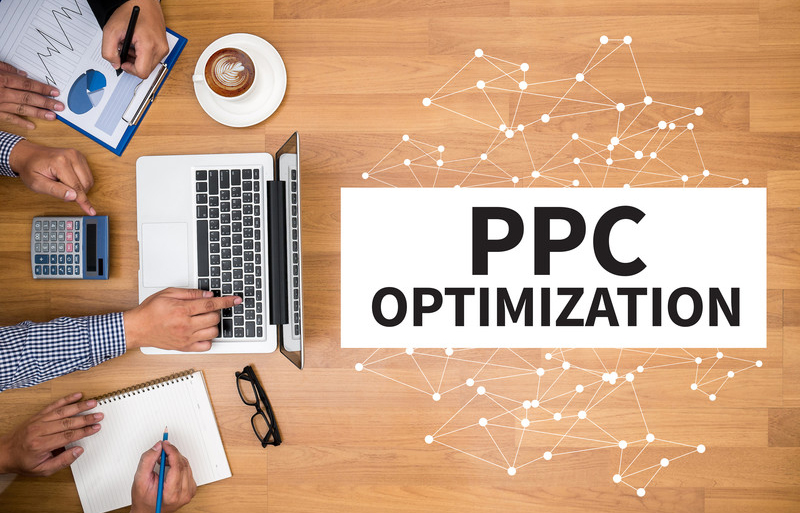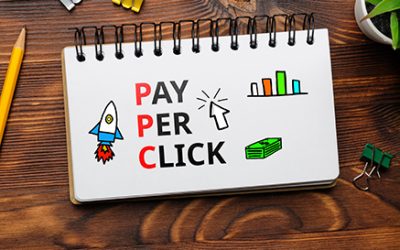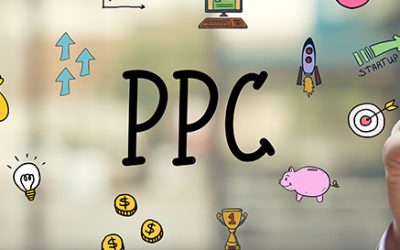Health-related queries are the most searched topics on search engines like Google, Bing, Yahoo and others. Therefore a strong and consistent online presence has become mandatory for medical practices and companies. Healthcare businesses need to target potential customer at every stage, build brand recognition and encourage conversions to survive in this industry and a good PPC campaign could help achieve these objectives. This is because with increasing competition, businesses are finding it difficult to reach out to their target audience through organic methods. Many of them are opting for search engine marketing (SEM) to promote their growth. Competition is an issue here also and brands have to find ways to make their PPC campaigns effective and ensure successful healthcare digital marketing. PPC or pay per click is an internet advertising tool to direct traffic to websites in which an advertiser pays a publisher when the ad is clicked. It requires constant monitoring, optimization, creativity and analysis. The following are some approaches to PPC that can help increase conversions and also improve results:

- Keyword optimization: For any business to increase web traffic, it is important to monitor the performance of relevant keywords. This is applicable for organic results as well as PPC. Google assigns the target keywords a Quality Score (QS) and this along with cost per click determines the “Ad Rank”. The QS is determined by the following factors.
- Ad relevance
- Expected click through rate
- Landing page experience
Out of the three factors, CTR is the most important factor in determining QS. So to optimize your QS, begin with CTR. It is good to create separate Ad Groups for each of your keywords, which is known as Single Keyword Ad Groups, this helps you to reach specific searchers and not a large group. Optimizing CTR and thereby improving quality score helps to generate more qualified traffic and better conversion rates. Once your CTR is optimized, move on to landing pages. Dynamic text replacement (DTR) is a method that can improve your landing page. DTR lets you tailor the text on your landing pages to match keyword parameters. This helps to improve quality score and also contributes to better conversion rate (CVR).
- Use of machine learning: Machine learning (ML) and artificial intelligence (AI) assures speedy and high performing marketing. From an AdWords point of view, this signifies automated bid and budget management of your AdWords campaign. A recent study by Marketing Land examined 50,000 campaigns to determine Google AdWords Industry Benchmark and the conversion rate with and without machine learning. The study showed that machine learning helps PPC marketers scale and optimize marketing tasks more efficiently.
- New ad extensions: Ad extensions come in ad format that shows additional information about your product. It increases an ad’s click-through-rate by several percentage points, increases visibility, CTR and ROI. Ad extensions are available in various formats and choosing the right one will be beneficial for your website.
- Call out extension: To call with just one click and get additional information about all offers such as limited service, discounted service etc.
- Location extension: To display your medical business address, contact number and directions to reach you.
- Site link extension: Provides additional links to other relevant pages
- App extension: Links that direct users to app store or provide a link to download link of the app.
- Review extension: Comes from online reviews which online customers tend to trust
- Structured snippets: Highlights specific elements of your service or products.
Test various extensions on a small scale to know which one works for you. Keep an eye on the users to know what terms they use for several possible results.
- Efficient re-marketing: High bounce rates are a reality with AdWords. People who come to your landing page are at different stages of the customer journey. Some of them may be new visitors. Your call to action may not work on them and they may bounce. For instance, you cannot expect a person who has just started educating herself on software solutions to accept a call to action for a demo. To regain any missed opportunities of acquiring a customer, use remarketing to cross sell and down sell bounced visitors. In the above example an eBook that instructs prospective customers how to overcome particular challenges would be an apt down-sell. They will receive directions as regards the options available to them while providing information about how your product facilitates the process. Retargeting helps to capture lead information, and boost the CVR and overall ROI of your campaigns. Following are some tips for remarketing ads to attract lost leads:
- Different personas and types of customers respond to different forms of media. Split test your re-marketing ads to provide an eBook and webinar and see which one generates more conversions.
- Dynamic targeting serves specific ads to different audience segments
- Include well known influencers in your space, this association helps to improve trust.
- Conduct A/B testing: It is present on any level of PPC campaigns. A/B testing is crucial for PPC campaigns as it makes ads more relevant. To test your PPC campaign, test the headlines, description, link, keywords, and ad extensions. Testing your landing page elements like design, images, CTA, benefits and features is also important. You should regularly use A/B testing to test your bids, keywords and ad groups to increase your conversion rate. Remember to test only one element at a time to get proper results; multi elements testing can be convoluted and indeterminate.
- Segmentation with in-market users: Using in-market audiences within your display ads you can target users on the basis of consumer behaviour and the content for which they have expressed an interest. According to Google, data such as sites browsed, proximity of visits, relevant ads clicked and conversion rate are used to categorize users by intent.
PPC is an effective strategy to promote your medical website. PPC helps to direct potential patients to your website and increases the profitability of your healthcare business. You can get faster results from PPC but it requires strategic efforts to get optimum results. A professional provider of medical SEO services can provide the right PPC campaign to increase your website visibility, traffic and conversions.




